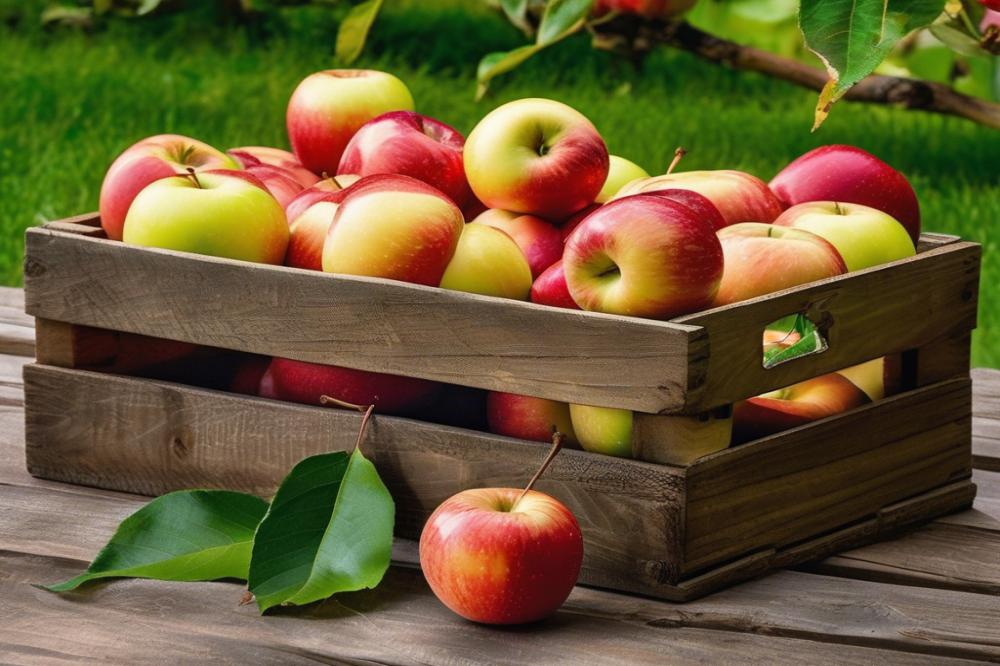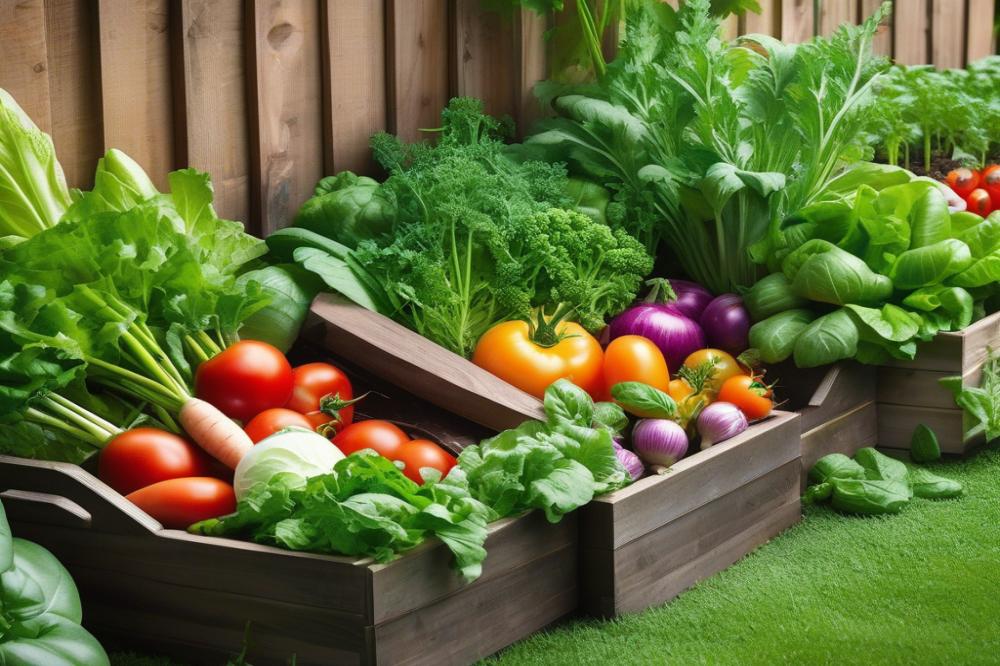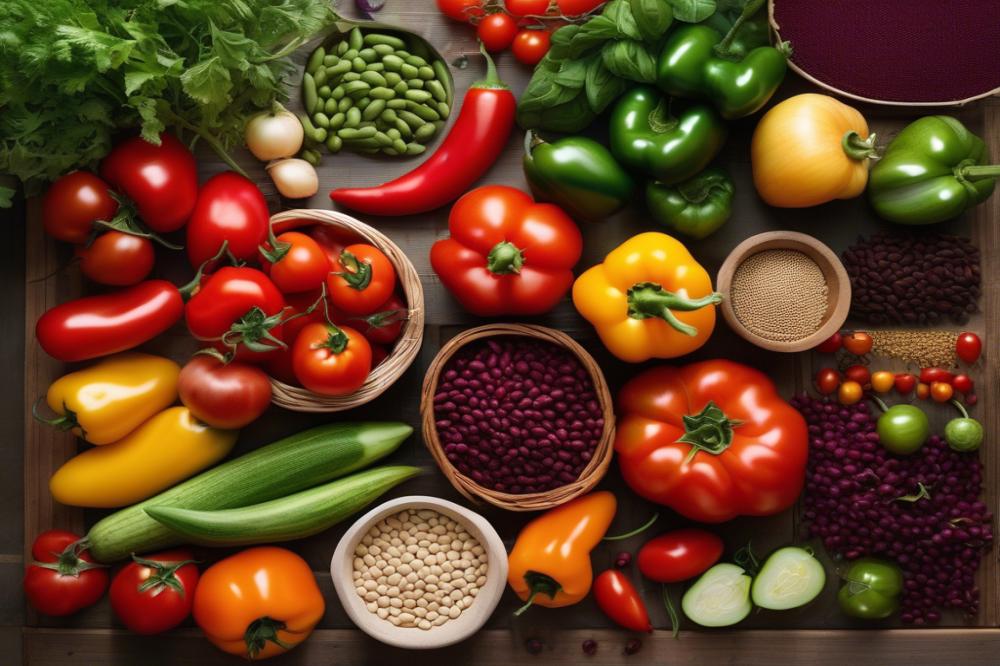Exploring Court Pendu Plat Apples
Court Pendu Plat Apples represent a fascinating chapter in the story of heirloom varieties. Originating from France, these heritage apples hold a significant place in the history of fruit cultivation. When it comes to apple varieties, they stand out not only for their intriguing origins but also for their remarkable flavor profile. Many fruit enthusiasts seek heirloom apples because they often carry rich stories and distinctive tastes.
Growing apples in home gardens has become an increasingly popular pursuit. Home gardeners appreciate the satisfaction that comes from nurturing their own fruit. In addition, planting different apple varieties offers an exciting journey into flavors and textures rarely found in stores. Taste testing various apples can be an educational and pleasurable experience.
Court Pendu Plat Apples, in particular, invite a closer look. Their culinary uses extend far beyond mere snacking. Bakers and chefs may find inspiration in their complexity when creating pies, sauces, or preserves. Sustainable farming practices often support the cultivation of such heirloom apples, promoting biodiversity in both flavor and ecosystem.
By delving into the world of fruit cultivation, one gets a sense of how apple history shapes our present. As interest in diverse apple varieties grows, so does the appeal of exploring their unique taste. With a richer understanding of these vintage fruits, the joy of biting into a Court Pendu Plat can be a true celebration of old-world farming traditions.
Court Pendu Plat Apples: History and Origin

The story of Court Pendu Plat apples begins in France, where they have been cherished for centuries. These heritage apples trace their roots back to at least the 17th century, making them one of the oldest apple varieties still cultivated today. Evidence suggests they were likely grown in orchards located in Normandy and other regions. Their name, which translates to “flat top,” reflects their distinct shape.
In the world of fruit cultivation, this apple holds a special place as a symbol of French apples. Farmers have long recognized its importance, not only for flavor but also for cultural significance. As an heirloom apple, it carries a legacy that connects generations. Many families have preserved this apple variety, passing down knowledge on how to grow it, maintain it, and enjoy its fruits.
The flavor profile of Court Pendu Plat is noteworthy. With a balance of sweetness and tartness, these apples offer a delightful taste experience. Taste testing reveals layers of complexity, satisfying both casual snackers and culinary enthusiasts. Chefs love using them in various dishes, ranging from desserts to savory meals, showcasing their versatility.
As the trend toward sustainable farming rises, this apple variety remains a key player. Heirloom apples like these are often cultivated using traditional methods. This commitment to time-honored practices helps protect biodiversity. Farmers engaged in this type of cultivation focus on soil health and avoid synthetic pesticides, contributing to a healthier environment.
Throughout apple history, Court Pendu Plat apples are celebrated for their charm and flavor. Their cultivation leads to the preservation of not just the fruit, but also the stories and traditions associated with it. Protecting these unique apple varieties ensures future generations can enjoy their rich heritage. In a world that often favors modern produce, these apples stand as a delicious reminder of what once was.
Flavor Profile of Court Pendu Plat Apples

When it comes to heritage apples, the flavor profile of Court Pendu Plat is truly noteworthy. This apple variety stands out with its rich blend of sweetness and mild tartness. Bite into one, and you’ll notice a delightful balance; it’s sweet but not cloying. The tanginess adds depth, making every bite interesting. These French apples boast a fine texture, crisp yet tender, which makes them enjoyable to eat fresh.
Compared to other apple varieties, such as Granny Smith or Fuji, this heirloom fruit offers a more complex experience. While Granny Smith is known for its strong tartness, Court Pendu Plat showcases a softer tartness that plays beautifully with its sweetness. Additionally, the Fuji apple leans heavily into sweetness, often overshadowing any tart notes. This unique combination makes for an apple that’s versatile in the kitchen.
Factors such as climate and soil significantly impact the taste of these apples. In regions with a temperate climate, the fruit can develop a richer flavor due to the natural sugars that accumulate. Soil health also plays a crucial role. Deep, fertile soils can enhance the apple’s flavor, contributing to more robust characteristics and a satisfying crunch. Sustainable farming practices further support the essential qualities, allowing these apples to thrive without the undue use of chemicals.
During taste testing events, many apple enthusiasts express surprise at how different this variety can be from supermarket apples. The complex taste intrigues both seasoned apple lovers and newcomers alike. Culinary uses range from desserts to savory dishes, making them a flexible ingredient in home cooking.
Apple history is filled with stories of varied types, but heritage apples like this remind us of the importance of preservation. Keeping the flavors alive through careful fruit cultivation allows future generations to enjoy these delightful tastes. Engaging with these varieties adds richness to our diets and enhances our connection to the earth.
Cultivating Court Pendu Plat Apples in Your Garden

Growing these heritage apples can be a rewarding experience. Start by selecting a spot in your garden with plenty of sunlight. Trees thrive in well-draining soil, so consider raising the planting area if your soil contains heavy clay. French apples, such as the Court Pendu Plat, prefer slightly acidic conditions, ideally between a pH of 6.0 and 6.8.
Plant in early spring or late fall when temperatures are mild. Dig a hole that is twice as wide as the root ball and deep enough to cover the roots without bending them. Spacing is crucial; aim for about 15 to 20 feet distance between trees to encourage proper airflow. This helps reduce the risk of diseases.
Once established, pay close attention to care requirements. Watering during dry spells is important, especially in the first few years. Mulching around the base of the tree can help retain moisture, suppress weeds, and maintain a stable soil temperature. Organic materials, such as wood chips or straw, work well for this purpose.
Pest management is another key aspect of fruit cultivation. Regularly inspect your trees for common pests like aphids and codling moths. Introducing beneficial insects, such as ladybugs, can provide natural pest control. When necessary, use insecticidal soap as a less toxic option compared to conventional pesticides.
Sustainable farming practices enhance the quality of the apples. Incorporating compost helps improve soil health and provides essential nutrients. Rotate crops in nearby areas to prevent soil depletion and control pests naturally. Embracing these practices leads to healthier trees and tastier fruit.
The flavor profile of these heirloom apples is often described as rich and complex. They can be enjoyed fresh, in pies, or even in chutneys. Taste testing different apple varieties can help you find the best use for your harvest. Understanding their culinary uses can greatly enhance your appreciation for this unique fruit.
Learning about apple history adds depth to your gardening journey. Each tree you cultivate connects you to centuries of agricultural traditions. By nurturing these heirloom apples, you become part of a story that spans generations. So grab your gardening gloves and get started on this apple adventure!
Culinary Uses of Court Pendu Plat Apples
Court Pendu Plat apples offer a variety of culinary opportunities. Their distinct flavor profile makes them suitable for numerous recipes. Desserts hold a special place for this apple variety. Baking them into pies infuses a delicate sweetness and soft texture. Cooks often use these apples for tarts as well, creating deliciously flaky crusts filled with warm fruit.
Unique sauces can benefit from their full-bodied taste. A simple apple sauce made from these apples enhances both savory and sweet dishes. It pairs well with pork or drizzled over pancakes. Food lovers appreciate how these heritage apples elevate traditional meals.
Salads present another interesting option. Chopped into crisp pieces, they add a refreshing touch. Mixing them with nuts and cheese forms a delightful combination. Chefs often recommend pairing Court Pendu Plat apples with ingredients like arugula or spinach. The contrast of flavors can make every bite exciting.
Additionally, these French apples serve well in drinks. They can be juiced for cider or turned into cocktails. This versatility showcases the benefits of cultivating heirloom apples. Sustainable farming practices help support these unique fruit varieties, enriching both flavor and soil health.
Taste testing different apple varieties has become popular, highlighting unique characteristics. Consumers seek out flavorful options, making the Court Pendu Plat a favorite among enthusiasts. Each dish featuring these apples tells a story of apple history that connects us to the past and the land.
Embracing different culinary uses can inspire creativity in the kitchen. Whether in sweet or savory formats, this apple stands out. Food culture thrives on discovering new flavors, making these fruits a vibrant choice.
Taste Testing and Popularity
Taste testing plays a crucial role in understanding the flavor profile of heritage apples. When trying Court Pendu Plat apples, tasters often notice a blend of sweetness and tartness. The flavor is unlike many modern apple varieties. Some describe hints of honey and spice that make each bite memorable. This distinct taste appeals to many apple enthusiasts who seek out new experiences.
Many people have participated in taste tests for these French apples. Their findings reveal a complex yet approachable flavor. Comments from testers frequently praise the balance of acidity and sweetness. Such qualities make them not just enjoyable for eating but also ideal for culinary uses. Cooks appreciate how well these apples perform in recipes, whether in pies or as fresh slices.
Interest in heirloom apples has surged in recent years. Gardeners are increasingly drawn to apple varieties like Court Pendu Plat. Sustainable farming practices contribute to this trend. They allow for the cultivation of these older fruit types without relying on harmful chemicals. As more gardeners try their hand at growing heritage apples, awareness of their exceptional taste continues to spread.
Popularity is on the rise for these unique fruit cultivars. Farmers’ markets often showcase varieties that were once rare. The desire for flavorful and interesting produce connects with a larger movement toward valuing apple history. Each bite of an heirloom apple tells a story, allowing people to connect with the past while enjoying delicious flavors. With the growing appreciation for these unique varieties, there is hope for their continued cultivation and tasting events across the country.
Final Thoughts on Court Pendu Plat Apples
In considering the role of unusual apple varieties in our gardens, the importance of certain heritage apples cannot be overstated. These fruits not only enrich our landscapes but also elevate our culinary adventures. The Court Pendu Plat variety stands out due to its distinct flavor profile that captivates any palate. Imagine biting into an apple that offers a complexity rarely found in the more common types available at the grocery store.
Growing these unique apples in your backyard can be a rewarding experience. They bring a piece of history with every harvest. Offering a delightful contrast to store-bought options, Court Pendu Plat apples provide tastes and textures that are often lost in modern agriculture. Their rarity adds to their charm, making them a conversation starter among friends and family.
Having this charming apple variety in your collection will not only diversify your garden but also enhance your cooking and baking endeavors. Consider adding them to your recipes for pies, salads, or even cider. Their distinct characteristics can turn a simple dish into something extraordinary.
Encouraging readers to explore these varieties is essential. Embracing the heritage of such apples helps keep them alive in our gardens and kitchens. For those who enjoy a culinary adventure, the Court Pendu Plat might just be the perfect match. Why not take the plunge and introduce this rare fruit to your home garden? You won’t regret it.



